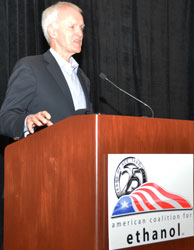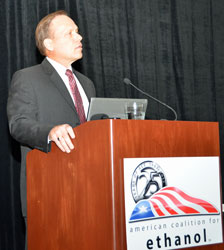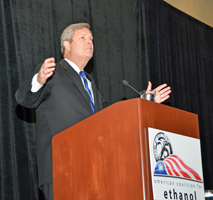 The first cellulosic plant using non-food waste materials in the country has received Parts 79 and 80 registration from the Environmental Protection Agency (EPA): INEOS New Planet BioEnergy (INPB). The news came as the facility of the Indian River BioEnergy Center (Center) nears production. The biorefinery will use vegetative, yard waste and agricultural waste to produce cellulosic ethanol and is scheduled to be commissioned in the next few weeks.
The first cellulosic plant using non-food waste materials in the country has received Parts 79 and 80 registration from the Environmental Protection Agency (EPA): INEOS New Planet BioEnergy (INPB). The news came as the facility of the Indian River BioEnergy Center (Center) nears production. The biorefinery will use vegetative, yard waste and agricultural waste to produce cellulosic ethanol and is scheduled to be commissioned in the next few weeks.
When the Center is in full production, it will produce 8 million gallons of advanced bioethanol and 6 megawatts of renewable power. INEOS Bio, the parent company of the project, has plans to run municipal solid waste at the Center after initial start-up is complete.
“We have completed this new facility on schedule and on budget and look forward to further advancing this bioenergy technology and making it commercially available around the world,” said Peter Williams, CEO of INEOS Bio and Chairman of INPB. “Building more facilities and licensing this technology globally provides a new platform for waste disposal while providing energy security, local jobs and local bioenergy. “New technologies like this will also move us further away from, avoid, and eventually change the food-vs-fuel debate.”
Once the biorefinery is in production, it will be one of the first to produce cellulosic ethanol under the Renewable Fuel Standard (RFS). The facility will feature INEOS Bio’s feedstock flexible BioEnergy technology that uses a combination of gasification and fermentation technology to turn various types of waste materials into fuel and electricity.











